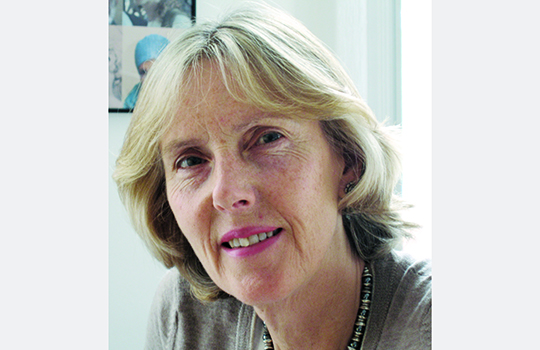Several days ago I returned from Borno state in northeast Nigeria, where a catastrophic humanitarian emergency is quietly unfolding. I was there to assess the situation and help set up Médecins Sans Frontières’ aid activities in one of those towns—Bama, approximately 70 kilometers southeast of Maiduguri, the state capital. On arrival, we found high numbers […]
William Cayley: Happy to be healthy
Drawing on a variety of demonstrated correlations between happiness (or “wellbeing”) and health, John Appleby recently argued that “improving individual, and hence national, wellbeing might best be achieved through improving people’s health.” While I appreciate any suggestion of policies or interventions that might boost health, I also think it worth considering whether the argument may […]
Matthias Wienold: Innovations that work—new tools for patients’ participation in research
Recently I was asked to identify a patient driven innovation for a workshop at the 7th Global Patients Congress. The title was “Patient organisation led innovation—what works?”. The innovation I chose is known as community advisory boards (CABs). Such boards are common tools in local and regional organisations of healthcare, but they also exist on national […]
Martin Kaminski: What I’ll miss about the NHS
As another first Wednesday in August approaches, I feel pensive and wistful that this year I won’t be spending changeover day in the heart of the National Health Service. Although you probably don’t hear it, I’m writing this in an American accent and am setting off for a spell to Boston, Massachusetts, where I grew […]
David Hughes: London, Zika, and the Rio Olympics
I remember clearly the night of the London 2012 Olympics opening ceremony. I was team doctor for the Australian women’s basketball team, the Opals. The Australian Olympic Team (AOT) usually sends one or two doctors to the opening and closing ceremonies, with a few basic medical supplies, to take care of any medical issues that […]
Helen McKenna: The consequences of living within your means
The technicality (or “administrative error” as the National Audit Office described it) that enabled the Department of Health to avoid breaching expenditure controls set by parliament may have spared it from the full wrath of the National Audit Office, MPs, and the Public Accounts Committee; but it did little to hide the bottom line—a serious […]
Rammya Mathew and Kate Birrell: A radical approach to end of life care
Death and dying are inevitable parts of life. They are not primarily medical events, yet the status quo is to medicalise the dying process and hand over responsibility for the provision of end of life care to healthcare professionals. This is despite the knowledge that at the end of life, people prioritise being in a […]
Tessa Richards: “Therapeutic relationships”—prized but hard to deliver

I hate to think of what I’ve cost the NHS since I was diagnosed with cancer in 2004. This year alone I’d need to factor in 12 outpatient appointments, seven MRI scans, and a course of radiotherapy. And “the worst is yet to come,” as one consultant I saw wryly reminded me. But sufficient unto […]
Jeffrey Aronson: When I use a word . . . Nutraceuticals and functional foods
Deborah Cohen recently reported in The BMJ that George Freeman, the UK sciences minister, whose responsibilities include the Medicines and Healthcare products Regulatory Agency (MHRA) and the National Institute for Health and Care Excellence (NICE), wrote to the EU’s research, science, and innovation commissioner, Carlos Moedas, last year urging him to “tackle the increasingly precautionary […]
Richard Smith: Doctors phishing for phools

In their influential book Phishing for Phools: The Economics of Manipulation and Deception two Nobel prize winners, George A Akerlof and Robert J Shiller, describe how businesses profit from exploiting human weakness. Politicians do the same and so, I suggest, do doctors. (I was about to assume that all BMJ readers know about phishing, but […]